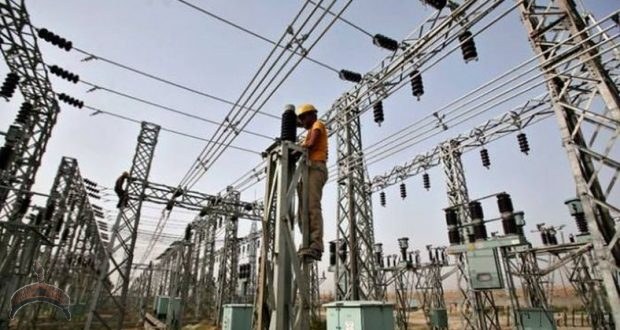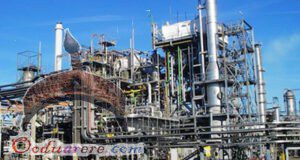The Nigerian government, between 1999 and 2010, reportedly spent over N4.7 trillion on power, but the country remained in darkness. Eight years later, Jonathan and Buhari administrations invested another N1.164 trillion into the sinkhole through capital releases, but homes and factories in Nigeria are yet to be provided with constant electricity supply. Beatrice Ogbor, a six-year-old girl, and her two-year-old sibling, were born into darkness and have never shared in the joy of the popular exclamation “Up NEPA” that follows power restoration in Nigeria. “We gave birth to her here in 2014,” her father, John Ogbor (45) says.
“You will be surprised that she and her sibling have never seen electricity since birth.” Ogbor is originally from Igede in Obi Local Government of Benue State. For the past 14 years, he has been living in Moro, a community along Shagamu – Ikorodu Expressway in Ogun State, after he left his original birthplace. But for almost seven years, his adopted community has been without electricity. “We tried the little we can. As individual landlords, we contributed N40, 000 to try to make this electricity thing a reality.
They said we should pay the money to process this and that to give us transformer, and we paid to Itesiwaju Area Community Council but at the end, nothing positive came out of it,” he said. For Ogbor, it has become almost hopeless waiting to access electricity in Moro, a community situated near the Nigerian Pipelines and Storage Company, a subsidiary of the Nigerian National Petroleum Corporation (NNPC) in, Mosimi. Aside its energy need, the community lacks access to healthcare, potable water, road, and schools. “God can still send help though, we believe,” says John.
He paused for a moment, took a deep breath while gazing at his two young children. “During campaign periods, we told them we don’t need rice, we don’t need money but electricity. That has been our only request.” Similarly, Alasia, Iraye, Oremuti, Oponua, Likorodu, Imede and five other communities in Ogun State visited by The ICIR, shared the same fate or worse. For eight years, the Oremuti community struggled to access power. Oponua has never been connected to the national grid. These conditions are not peculiar to Ogun State, but also other states across the country.
In Iraye community, Sagamu Local Government Area, the first set of electricity poles, according to Rasheed Alimi, the community head, was erected in 1994. To date, residents still live in darkness. A huge concrete platform constructed for the electrification project still lies adjacent to the residence of Alimi. It has neither transformer nor electricity cables except for about three electricity concrete poles sighted in the area. Nearby is a multimillion Naira 10-bed health care facility built by the NNPC, but it is off-the-grid. Neglected and taken over by bush, eight months after commissioning.
The oil firm had installed a giant generator to service the clinic whenever it becomes operational but when this reporter visited, he observed that weeds also have covered the generator. Findings, however, revealed that the Ogun State Assembly under the administration of Sen. Ibikunle Amosun, approved in the 2013 budget, the electrification of 32 communities, including Iraye. A closer look shows that the state Ministry of Rural Development and Rural Electrification in Annexure-II (B) listed the proposed benefitting communities but no such project exists today in Iraye.
Over N1 trillion invested in power in eight years Nigeria generates its power via four main sources – hydro, gas, coal and natural gas. But for almost 20 years, huge unverified amount of money has been expended on the sector. Specifically, The ICIR, can authoritatively report that N1.164 trillion has been released to the power sector as capital budgets from 2011 to 2018, yet the power sector has not measured up – darkness still prevails.
This figure was obtained from the Office of the Accountant General of the Federation. Electrical power often generated is literally not commensurate with the huge investments. And returns on investments have largely been discouraging as the Federal Government continues to pump in more resources in terms of budgetary allocations, loans among other interventions to ensure the nation meets its energy need. The Energy Business report (April 2016 vol. 15 no 160), shows that N6.52 trillion has been spent on Nigeria’s power sector in 16 years with no significant improvement.
For example, ex-President Olusegun Obasanjo, the report says, allegedly spent N3.52 trillion ($16 billion) during his tenure, though this figure has been contested. Also, late President Umar Yar’adua was said to have spent N1.183 trillion, while the former President Goodluck Jonathan during his administration reportedly expended N1.817 trillion and President Muhammadu Buhari reportedly spent N1.5 trillion in two years, as at September. Meanwhile, findings by The ICIR revealed that between 2011 and 2018, the Office of the Accountant General of the Federation released capital sum of N1, 164,278,006,846 for power projects in the country.
This sum, however, excludes capital releases to six agencies between 2016 and 2018 namely, Office of the Surveyor-General of the Federation, Federal School of Survey, Oyo, Federal Road Maintenance Agency (FERMA), Council for the Regulation of Engineering in Nigeria (COREN), Surveyor Council of Nigeria and Regional Centre for Training in Aerospace Survey, when the Buhari-led administration merged the power ministry with works and housing. Epileptic power crippling rural economies, small businesses The importance of stable power as driver of any country’s economy cannot be overemphasised as it is capable of transiting Nigeria from an under-developed to the much desired developed status, especially when industries, Small and Medium Business Enterprises (SMEs) are supported.
But as at today, 90 million Nigerians still lack access to power, a situation that has crippled SMEs and industries. Mrs. Apansile Ade, for instance, is an entrepreneur who operates water and paint factories. She had run the business for over five years but at a loss. She is currently operating only the water factory because the paint business has gone under. “We just stopped producing because the generator developed a fault,” she told The ICIR. “Last week I spent almost N75, 000 repairing generator. I had to stop my son from resuming school on Monday because the little money I would have given to buy books and beverages was no longer there”. Unfortunately, the community she resides since 2010 has never been connected to the grid. As a result, she bought six generators to power her house and the water factory.
The last power generating set just collapsed when The ICIR visited. Government hoards information In order to ascertain the exact amount invested in the power sector, the FOI request was sent to the Federal Ministry of Power. The ministry acknowledged receipt of the request and promised to respond. Weeks after, the ministry is yet to send a reply.
Efforts through FOI requests from The ICIR to access a copy of the power sector shared agreement, which the federal government signed with the unbundled companies, failed. The power ministry acknowledged the same letter but referred to the National Electricity Regulatory Agency (NERC) and the Bureau of Public Enterprise (BPE). But, till date, the document has not been provided. BPE claimed one of the power agreements is being investigated by the EFCC. However, the EFCC has remained numb on the claim after several attempts to verify.
During the investigation, The ICIR visited the Omoku Generation Company Limited 264.7MW and 225MW power project awarded to Rockson Engineering Company Limited, which is located in Omoku community, Ogba/Egbema/Ndoni Local Government Area of River State. The military and private security officials guard the uncompleted facility, which was awarded 14 years ago. In November 2017, the NDPHC promised Omoku and three other plants – 750MW Alaoji, 338MW Egbema and 225MW in Bayelsa would be completed before the third quarter of 2018, but that’s not entirely the case.
 Ọmọ Oòduà Naija Gist | News From Nigeria | Entertainment gist Nigeria|Networking|News.. Visit for Nigeria breaking news , Nigerian Movies , Naija music , Jobs In Nigeria , Naija News , Nollywood, Gist and more
Ọmọ Oòduà Naija Gist | News From Nigeria | Entertainment gist Nigeria|Networking|News.. Visit for Nigeria breaking news , Nigerian Movies , Naija music , Jobs In Nigeria , Naija News , Nollywood, Gist and more









